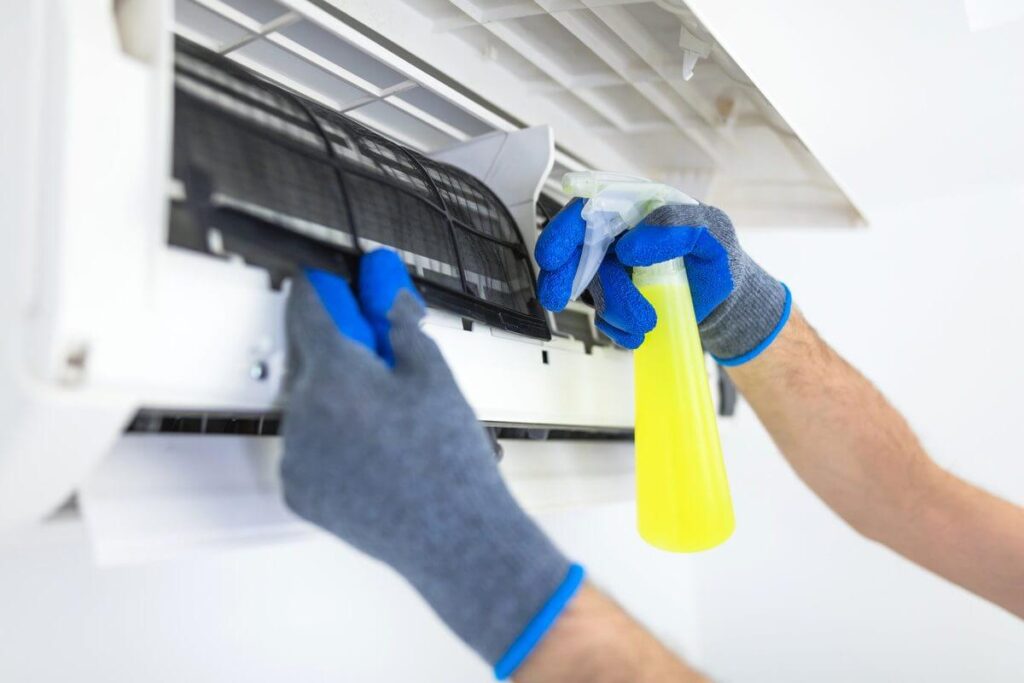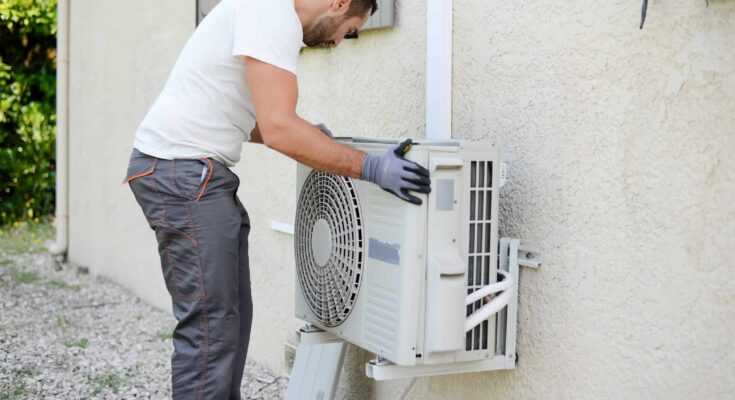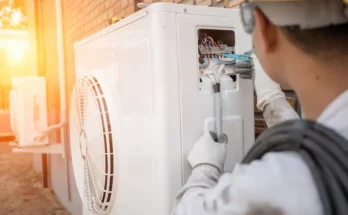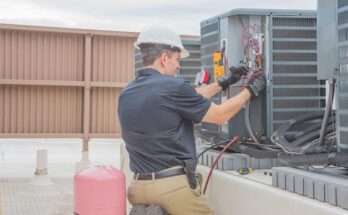Air conditioning isn’t just about comfort—it’s about keeping your home livable when the heat ramps up. So when your unit starts acting up, the big question is: maintain it or replace it? Whether you’re considering a quick fix or seriously thinking about ac replacement, this guide will help you weigh your options and make the right call.
2. The Value of Routine AC Maintenance
Let’s be real: your AC is like your car. Ignore it, and it’ll break down. Maintain it, and it’ll keep you cool without complaint.
Getting your AC serviced at least once a year keeps everything running smoothly. You’re not just protecting your comfort—you’re protecting your wallet too. Regular check-ups mean:
- Lower utility bills
- Longer system lifespan
- Fewer breakdowns (especially during a heatwave)
- Cleaner indoor air
- Peace of mind
3. Common Signs Your AC Needs Some TLC
Your AC might not speak, but it definitely drops hints when something’s wrong. Watch out for these red flags:
- Weird noises like clanking or buzzing
- Airflow issues (like a weak breeze or no air at all)
- Blowing warm air even when set to cool
- Musty or burnt smells
- Sky-high electric bills
- Frequent cycling (starts and stops constantly)
If any of these sound familiar, your system might be begging for a check-up.
4. Why Bother? Real Benefits of AC Maintenance

More Efficient Performance
A tuned-up AC works smarter, not harder—cooling your home without wasting energy.
Fewer Surprise Repairs
Catch small issues before they turn into expensive emergencies.
Lower Costs Over Time
Save money on both your energy bills and long-term repairs.
Better Air Quality
Clean filters and coils mean less dust, allergens, and pollutants floating around your house.
Boosted Home Value
Thinking of selling someday? A well-maintained HVAC system is a great selling point.
5. What You Can DIY vs. When to Call in a Pro
What You Can Handle Yourself
- Changing or cleaning air filters monthly
- Keeping the outdoor unit clear of debris
- Making sure vents aren’t blocked by furniture
- Double-checking thermostat settings
When to Leave It to the Experts
- Refrigerant checks or top-offs
- Cleaning internal components (like the evaporator coil)
- Electrical inspections
- Deep cleaning drain lines and pans
- Annual system tune-ups
Even if you’re handy, a pro should look things over at least once a year.
6. When Maintenance Isn’t Enough: The Case for AC Replacement
Let’s say you’ve kept up with maintenance, but your AC still struggles to cool your home or breaks down regularly. At a certain point, it’s smarter—and more cost-effective—to replace than repair.
And if you’re finding yourself searching ac replacement near me, chances are you already suspect it’s time to upgrade.
7. Signs It’s Time to Let Go of Your Old AC
- You’ve had it for over a decade
- Repairs are becoming frequent and expensive
- It never cools your space evenly
- Your home feels humid or clammy
- It runs non-stop, but the temp never drops
- You’re planning to sell and want to boost home value
8. Important Things to Think About Before Replacing
Swapping out your AC is a big decision. Consider:
- Size of the unit: Bigger isn’t always better. It needs to fit your home’s square footage.
- Energy rating (SEER): Look for 14 SEER or higher for better efficiency.
- Ductwork: If it’s leaky or outdated, replacing your unit won’t solve everything.
- Smart features: Do you want remote access, scheduling, or zoning?
- Warranty: A good warranty can save you a ton down the line.
9. Picking the Right New AC Unit
Types of AC Systems:
- Central Air – Great for larger homes with existing ducts
- Ductless Mini-Split – Ideal for zoned cooling or homes without ducts
- Window Units – Budget-friendly and easy to install for small rooms
- Portable Units – Versatile but less efficient
Make sure to choose a model that fits your lifestyle, home layout, and climate zone.
10. Breaking Down the Costs: Maintenance vs. Replacement
| Service Type | Average Cost |
| Annual Tune-Up | $100–$300 |
| Basic Repairs | $150–$500 |
| New AC System | $3,500–$7,500+ |
Pro Tip: If a repair costs over 50% of a new unit’s price, it’s usually smarter to replace.
11. Tips to Make Your AC Last Longer
Want to keep your AC around for the long haul? Here’s how:
- Replace filters monthly or as needed
- Clean the coils every season
- Schedule yearly professional inspections
- Avoid overcooling—set your thermostat wisely
- Use ceiling fans to ease the load
- Keep blinds or curtains closed during the day
12. Energy Efficiency: Fix It or Replace It?
Sometimes, a simple tune-up can improve energy performance dramatically. But older units—especially those with SEER ratings under 10—just can’t compete with modern, high-efficiency systems.
Newer units can cut cooling costs by 20–40%, especially when paired with smart thermostats and upgraded insulation.
13. Thinking Green: Environmental Pros & Cons
Old ACs often use refrigerants that harm the ozone layer. Plus, they’re less energy-efficient, which means a bigger carbon footprint.
Switching to a new Energy Star-rated system means:
- Less electricity use
- Reduced emissions
- Eco-friendly refrigerants
- More sustainable home living
14. Frequently Asked Questions
How often should I service my AC?
At least once a year. Spring is the perfect time to get your system checked before the hot weather hits.
How do I know if I need a new AC or just a repair?
If your unit is 10–15 years old and keeps acting up, replacement is probably the smarter option—especially if energy bills are climbing.
Can I do my own AC maintenance?
Some basics like filter changes and cleaning around the unit are fine. But leave refrigerant and electrical work to the pros.
What’s the average lifespan of an AC system?
With regular maintenance, most systems last 12 to 15 years—sometimes even longer.
What’s the best type of AC system for a small home?
A ductless mini-split or high-efficiency window unit can be ideal for smaller spaces.
15. Final Thoughts
At the end of the day, both AC maintenance and AC replacement have their place. Regular maintenance keeps your current system humming along, saves money, and prevents headaches. But when your unit is old, inefficient, or constantly breaking down, upgrading to a modern AC can improve comfort, reduce costs, and make your home greener.
The key is knowing when to tune up—and when to trade up.



